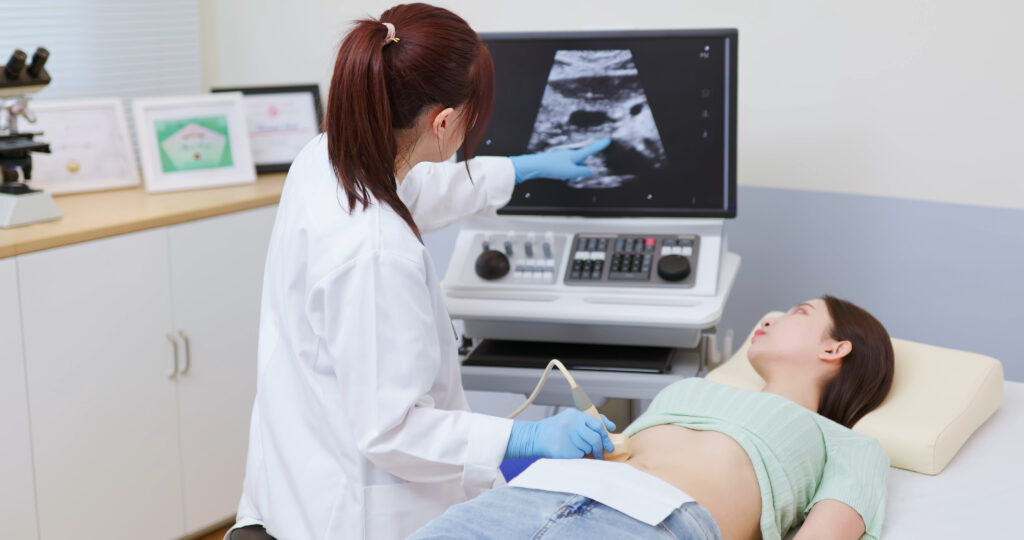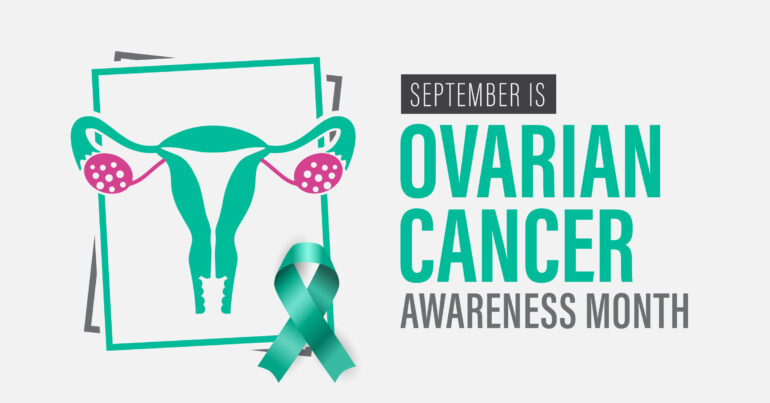Ovarian cancer continues to challenge doctors who are searching for ways to detect the disease earlier to help save patients’ lives. In 2021, the National Institute of Health reported an estimated 238,484 women were living with ovarian cancer. When diagnosed early, 94% of patients live longer than five years.
Yet, historically, ovarian cancer evades early detection by doctors. According to the American Cancer Society, only about 20% of ovarian cancers are discovered at an early stage. As a result, ovarian cancer remains a leading cause of cancer deaths in women, with 13,000 deaths estimated in 2024 alone.
“Even with our very best modalities, which classically has been the transvaginal ultrasound and that CA-125 blood tests, it has still really never been found to detect anything early,” said Dr. Elena Moore, a gynecologic Oncologist at Endeavor Health Medical Group in the Chicago area.

Gene mutation identification key finding for cancer risks
But progress is being made. Identifying inherited mutations that predispose women to ovarian cancer is so important, Moore said.
While it has been known for some time that BRCA 1 and BRCA 2 predispose one to ovarian cancer, there are now other cancer genes identified, such as PALB2 and Lynch Syndrome, that are also associated with ovarian cancer.
Moore said that with the identification of ovarian cancer genes, people can be identified, tested, and prevent the disease entirely with risk-reducing surgery.
“I think it is probably one of the bigger strides that we’ve made honestly in recent years,” Moore said.
The National Comprehensive Cancer Network, a governing body overseeing general care, has liberalized the guidelines regarding who should have genetic testing.
“It used to be very, very few people met the criteria for genetic testing,” Moore said. Now, insurance is covering more genetic testing.
So, for example, now anyone with a first or second-degree relative with ovarian cancer should be tested, Moore said. “Anyone with a first-degree relative with pancreatic cancer (those with BRCA and Palb2 mutation are also at risk for pancreatic and breast cancer) should be tested. These are some of the things that are a little bit more broad than were previously recommended.”
Early signs of ovarian cancer in fallopian tubes discovered
Dr. Stephanie Blank, a gynecological oncologist at Mount Sinai, said at their 2022 Ovarian Cancer National conference that more ovarian cancer therapies have been approved since 2014 than combined in the last 60 years. In addition to chemotherapies, there are also targeted therapies that show promise. Targeted therapies differ from chemotherapy because they attack specific cancer cells and leave healthy cells untouched. The targeted therapy has less effect on hair loss and the digestive system. Blank noted that deaths are down 2.3% per year, much attributed to genetic testing.
A meaningful change is the discovery that 70 percent of the most common ovarian cancers begin in the fallopian tubes, which is also crucial in diagnosing.

Moore explained that Harvard University’s Dr. Chris Crum began taking the fallopian tubes of women who were having prophylactic surgery. They found a disproportion of those patients had fallopian tube cancer and nothing in the ovary. That has become an early precursor of ovarian cancer.
After this discovery, more patients were found to have early ovarian cancer; this finding was significant since most were diagnosed in an advanced stage. The ability to detect this cancer early, like cervical or colon cancer, is an important milestone in ovarian cancer research.
Is surgery appropriate for everyone?
While more women were diagnosed following biopsies after a prophylactic surgery, it begs the question, what about women at average risk?
Moore said that women who were having an appendix removed or gall bladder surgery could theoretically opt to have the fallopian tubes removed as well. But the question is, is it appropriate for everyone due to the risks of surgery?
For those with genetic mutations, it may make sense to remove just the tubes in women who still want to have children or are well before the menopause stage.
Moore also said it is important to know family history and get genetic testing, nothing that insurance typically covers genetic testing if a first or second-degree relative has had ovarian, breast, or pancreatic cancer. Furthermore, the cost of genetic testing continues to decrease, and Moore said it might be worth the out-of-pocket expense for people who do not fall within the insurance criteria.
Know the early signs of ovarian cancer
Many times, women overlook potential early signs of ovarian cancer because they can be mistaken for other non-serious conditions. The Mayo Clinic highlights the following symptoms in women:
- Bloating, even with weight loss
- Pelvic or abdominal (belly) pain
- Trouble eating or feeling full quickly.
- Urinary symptoms such as urgency (always feeling like you have to go) or frequency (having to go often)
- Fatigue (extreme tiredness)
- Upset stomach
- Back pain
- Pain during sex
- Constipation
- Changes in a woman’s period, such as heavier bleeding than normal or irregular bleeding
The presence of any of these symptoms doesn’t necessarily mean cancer. However, patients who struggle with these symptoms regularly or enough to warrant concern should speak to their doctor.
How To Help
September is Ovarian Cancer Awareness Month, and the Ovarian Cancer Research Alliance hopes to meet its $300,000 fundraising goal. Donors can specify where they would like their contributions to go. Donors can choose from research, patient support programs, free genetic testing, or general support.

More From Better
- How to Spot Signs of a Concussion
- Art of Skin Expands to NYC: Chicago Initiative Grows into a National Movement for Dermatologic Equity
- Katie Couric Reveals Breast Cancer Diagnosis and an Important Message: Don’t Forget Your Annual Mammogram

Susan Berger is a freelance journalist in Chicago and has written for the Washington Post, New York Times and Chicago Tribune. She was a 2021 CDC Fellow through the Association of Health Journalists, a National Press Foundation Fellow in 2019 to study vaccines and dementia. She also has written for Health Magazine, National Post, Agence France-Presse, and CBC and Better Magazine. Ms. Berger has appeared on the Today Show, NBC Nightly News, BBC World News, CNN, WGN-TV, WTTW-TV and on CBC Radio. Her work can be viewed at www.bergerreport.com and you can follow her on X @Msjournalist

